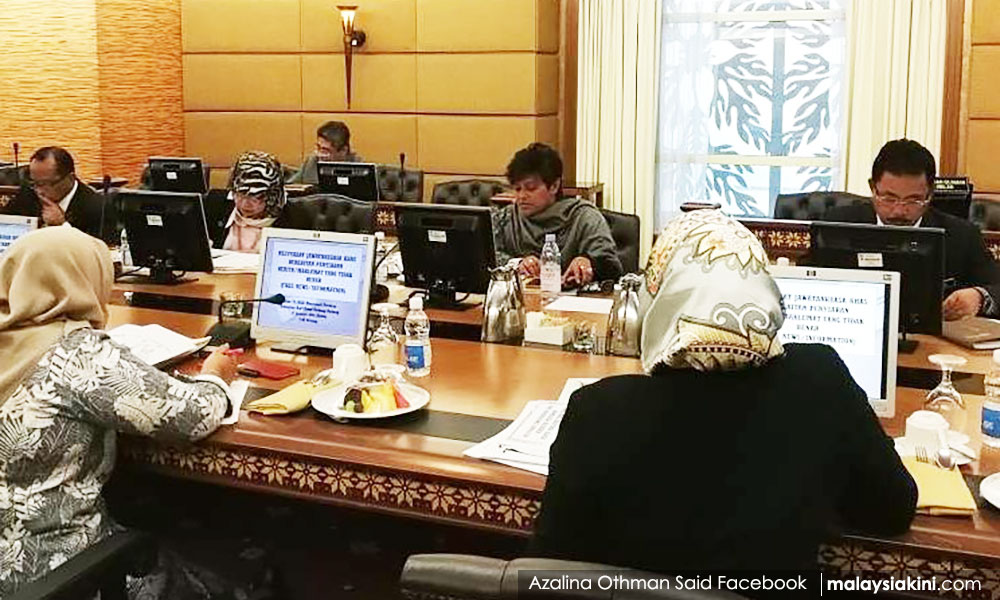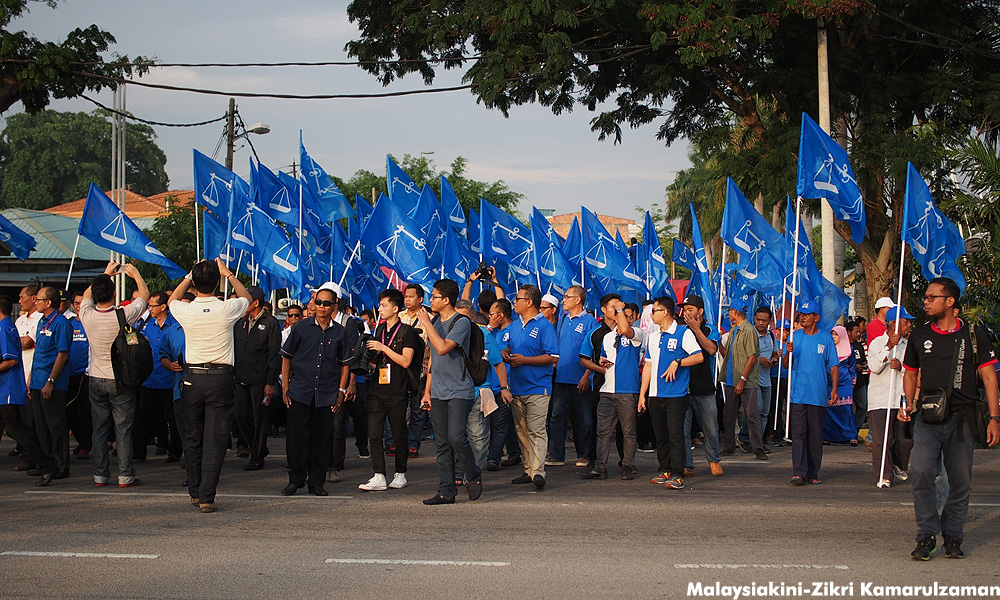COMMENT | Perhaps the most astute and pertinent comment made so far regarding the BN’s concern over what it considers "fake news" has been this one we found on one social media platform: “Easy; disband RTM and get rid of Utusan...95 percent fake news gone.”
It is amazing and alarming – albeit rather predictable – how quickly this regime is moving to legislate against purported "fake news". And, thus far, how surreptitiously, too.
The earliest report on this proposed legislation was on Jan 28, when Najib declared the regime’s intentions at a gathering in Kelantan.
His "comforting" words were, “We don’t want this fake news to spread. This does not mean we control the internet, the internet is free but the freedom must exist with the elements of accountability.” Accountability to the regime, presumably.
Be that as it may, the past couple of weeks have seen a flurry of behind-the-scenes activities. Numerous regime officials, led by Communications and Multimedia Minister Salleh Said Keruak and Minister in the PM’s Department Azalina Othman Said, have come out to support the move.

Azalina has asserted that all stakeholders will be consulted before any bill is presented in Parliament. Yet, we understand that her committee of stakeholders has already had a couple of meetings, with many of us having little clue of who the "stakeholders" are.
One clearly partisan website has reported that this drafting committee “comprises representatives from the police, Attorney-General’s Chambers, National Security Council, Malaysian Communications and Multimedia Commission (MCMC), the Communications and Multimedia Ministry, and the Legal Affairs Division (BHEUU).
While they all may sound terribly officious, we do wonder though how representative of Malaysian stakeholders they really are. Where, indeed, in this committee, are the opposition MPs, civil society representatives, academicians and even independent lawyers?
What’s more disconcerting and ominous is that their plan is to table and pass the proposed legislation at the next parliamentary sitting, just before GE14.
Not surprisingly, many believe that this is yet another nasty move on the part of a regime hellbent on curbing alternative explanations, especially those provided by the more-independent internet news portals and through social media.
To be sure, the term fake news is now a catch-all phrase for political opinion, rumours, speculations, false advertising, news stories with errors, etc. What it actually refers to is propaganda, disinformation and the deliberate creation and dissemination of false content to mislead/misinform the public.
History of censorship under BN
Fake news has been with us way before the advent of the internet and the spread of social media. And much of it has been manufactured and circulated by the government.
Study after academic study of the Malaysian media has shown that the BN regime has a history of censorship of political content and the manipulation of information during elections.
And, of course, the spreading of what one former director-general of broadcasting called "half-truths". Today’s fake news is essentially "half-truths" in new packaging.
And if, as all these widely-published studies since at least 1990 have shown, the BN is the main perpetrator and producer of fake news, letting a committee led by them to legislate against their notion of fake news would only serve their goals, not the goals of democracy and fair play.

What is more likely is that the committee will not-too-cleverly use their notion of fake news to legitimise further the government's suppression of opinions and expression.
And despite the predictable brushing aside of these fears by people like Azalina, this development must be seen in the context of the BN's strategies for every general election – domination of news and points of view by all media.
By constantly referring to or alleging something is fake news, they try to create a sense of panic, an environment of fear and of imminent threats to society. But there is no evidence, less so credible ones, to support this so-called concern over the fake news and its effects in Malaysia.
We have witnessed such tactics before and it is aimed at inculcating a sense of helplessness and subsequently, dependence on the government to fix the problem.
But there is nothing benign about this government; it wants to control information flow and censor opinions and expressions that run contrary to theirs.
The BN's political agenda is clear, especially given that their committee will begin its work (without us being openly informed who make up the committee and its terms of reference) and possibly introduce legislation in the next parliamentary sitting.
It is clear that the approach being taken, yet again, is a top-down one, with the BN regime calling the shots, determining what constitutes "fake news".
If, as all those academic studies reveal, the BN regime is the dominant source of (fake) news and information, surely letting the regime now to define the terms and design the fake news legislation is akin to letting the fox guard the chicken coop?
GAYATHRY VENKITESWARAN and ROM NAIN are from the Centre for the Study of Communications and Culture, The University of Nottingham Malaysia Campus.
The views expressed here are those of the author/contributor and do not necessarily represent the views of Malaysiakini.

